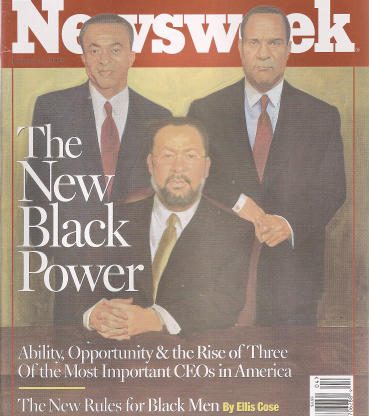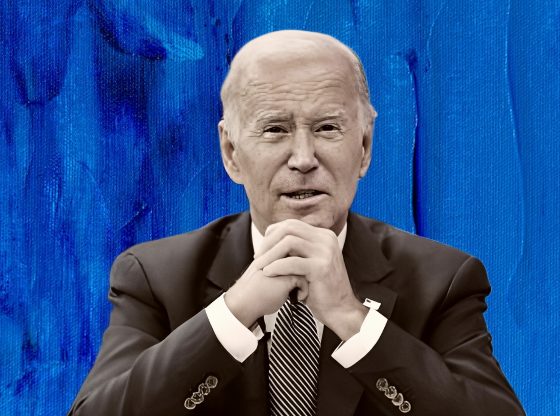On Monday, America marks our second Juneteenth national holiday. Some will focus on the severe pain and death that slavery inflicted on blacks between 1619 and 1865. It would be far more useful, however, to celebrate so much that black Americans have accomplished since the original Juneteenth liberated the last of some 4 million emancipated slaves.
That joyous day arrived on June 19, 1865. Having vanquished the Confederacy that April, victorious Union Army soldiers reached Galveston, Texas. They encountered that final group of slaves who were unaware that the South had fallen.
More important, the men in blue uniforms read General Order No. 3 to people who, until then, were private property: “All slaves are free.” Henceforth, these black men, women, and children belonged to themselves, not others.
Republican-led Reconstruction efforts initially offered blacks much hope. Some former slaves represented the South in Congress.
Alas, Democrats got the upper hand as Reconstruction faltered, and they dug their heels into black necks. But despite the oppression of Democrat-enforced Jim Crow laws and the terror imposed by the Democrat-founded and manned Ku Klux Klan, blacks capitalized on the opportunities that America offered, first grudgingly and then with increasing enthusiasm. Since the Civil Rights Act of 1964 torpedoed Democrat-operated systemic racism in the South, millions of blacks have flourished across America.
Booker T. Washington rose Up from Slavery, as his fascinating memoir details. Born as his master’s possession in 1856, Washington was free but spectacularly poor after the first Juneteenth. At one point, he slept beneath a raised sidewalk in Richmond, Virginia.
Washington soon educated himself, and then others. He founded Alabama’s Tuskegee Institute on July 4, 1881. It was among the first Historically Black Colleges and Universities. Washington wrote and lectured widely and became the White House’s first black dinner guest when Republican President Theodore Roosevelt welcomed him in October 1901.
Madam C.J. Walker became America’s first female millionaire entrepreneur. She earned her fortune in the early 1900s by marketing hair-care products to fellow blacks. By selling Afro Sheen before Afro Sheen, she made enough money to buy a mansion in posh Westchester, New York, near that of John D. Rockefeller.
The Netflix mini-series Self-Made dramatizes Walker’s amazing life. It stars Octavia Spencer, a black success story in her own right and an Academy Award winner, along with Sidney Poitier, Isaac Hayes, Whoopi Goldberg, Denzel Washington, Spike Lee, and numerous other exceptional black filmmakers.
Black musicians Louis Armstrong and Duke Ellington co-fathered jazz, as W.C. Handy, Sidney Bechet, Ella Fitzgerald, Fats Waller, Dizzy Gillespie, Quincy Delight Jones, George Benson, Wynton Marsalis, and countless other black talents still polish this all-American art form to a blinding sheen.
The Tuskegee Airmen bombed Adolf Hitler to bits and buried beneath smoldering rubble the notion that blacks lacked the brains to fly.
Jackie Robinson integrated baseball. Muhammad Ali was The Greatest pugilist. Michael Jordan towered over basketball. Tiger Woods dominated golf and still competes despite severe wounds from a February 2021 car wreck.
Impresario Berry Gordy launched a whole new sound called Motown. Kenneth Chenault led American Express for 17 years. Ursula Burns was CEO of Xerox. Richard Parsons ran Citigroup and TimeWarner. E. Stanley O’Neal’s grandfather was a slave. Two generations later, O’Neal chaired Merrill Lynch.
Colin Powell and Condoleezza Rice were U.S. secretaries of state. Eric Holder and Loretta Lynch were U.S. attorneys general. Kamala Harris is vice-president. And Barack Obama spent eight years as President of the United States.
If he were alive, Dr. Martin Luther King likely would argue that — while room to rise remains — his Dream has come true. Beyond these famous names, millions of black Americans use their freedom to improve themselves, their loved ones, their communities, and this nation.
This and every Juneteenth, Americans of all hues should applaud black success since Emancipation rather than wallow with the Critical Race Theorists in all the wrongs before June 19, 1865.
Deroy Murdock is a Manhattan-based Fox News Contributor, a contributing editor with National Review Online, and a senior fellow with the London Center for Policy Research.











